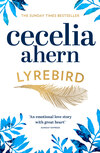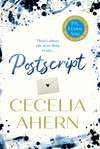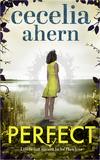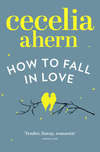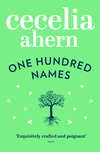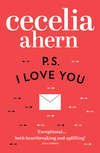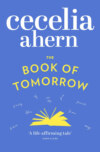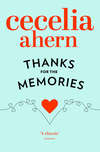Kitabı oku: «Lyrebird», sayfa 6
10

At night it is astonishing just how dark Laura’s world is, how isolated and secluded she is. What during the day seems remote yet peaceful, during the night seems menacing and cruel, as though she has been abandoned. She has nobody. Nobody. Ring, the surviving sheepdog, comes to her sometimes when he’s not with Joe, perhaps feeling comfortable with her over their shared grief of Mossie and Tom. He is her only company, and the birds and creatures that move around her. She has become adept at sensing them before anyone else does, warning Rachel before she takes a step backwards and uncovers a dead badger, or a fallen bird’s nest. Her senses are so finely tuned to the natural world around her, it seems to Solomon at least, that Lyrebird, as Bo has now taken to calling her, has almost disappeared. It feels to Solomon that Laura doesn’t consider herself to be present in the environment and instead takes on the sounds, the essence, the life of everything around her, just like her favourite storybook. While the tree absorbs human life and becomes a young woman, this young woman absorbs nature and becomes a part of nature, or tries to.
‘There should be a sequel,’ he says referring to the storybook, as they stand together by a window of the cottage. Solomon can’t fight his instinct to look outside every time he hears a sound. He feels responsible to guard her, which is ridiculous as Laura easily identifies every single sound each time he flinches, to put him at ease. He’s not sure who’s protecting whom. Rachel and Bo are sitting on the couch by the firelight, looking over footage they’d filmed that day. ‘I want to know how this shoeless woman who used to be a tree gets on in the world. Does she become a hot-shot business woman in the corporate world and lose all her emotions? Turn into a robot? Or does she fall in love, get married and have five tree children, or …’ he laughs.
‘What?’
‘Never mind.’
‘Tell me.’
‘Or does she step out onto the road as soon as she leaves the park and get hit by a truck, because she couldn’t see traffic from the park.’ He smiles but Laura looks thoughtful.
‘I think she just needs to find someone to trust and she would be okay.’
‘Trust,’ he says, unimpressed by the word. ‘Did tree woman learn about trust in the park?’
‘No,’ she laughs. ‘Well, maybe. She learned about humanity. You’ll have to read it. But she doesn’t need to have learned it from the park. Trust is the kind of thing you feel inside.’
‘Ah. It’s instinctual.’
‘Yes.’
‘Don’t give away the ending now.’
‘That’s not part of the story.’
He stares at her, not caring that she sees him doing it. Her eyes glisten even in the dark, her lips so plump and soft he wants to kiss them more than anything. He’s disturbed by how powerful the instinct is, sure he’s never felt this way before. He looks away, clears his throat.
‘Do you want to sleep here tonight?’ he asks.
‘Are you going to?’
‘No,’ he says quietly. ‘I can’t, Laura.’
‘Oh, I know.’ She gets flustered, but he can’t really read her eyes in the darkness. ‘I meant all of you. You’re all welcome.’
‘All of us in there?’ he asks, looking around the cottage.
‘No, you’re right, we’ll go to the hotel,’ she says. ‘I don’t want to be here on my own.’
And to herself she adds, any more.
The following morning, they visit Laura’s grandmother’s house where she and her mother were raised. Far from the main road, twenty minutes from town, it is a remote bungalow away from prying eyes. Like so many homes in the rural area, you wouldn’t see the small track leading to the house if you didn’t know it was there. Even if you did happen upon it, it lacked enticement, and belied the warmth and love that lay within its boundaries. It hasn’t been inhabited since Hattie’s passing nine years previously and it shows. Despite not having been there for ten years, Laura guides them as though she were there yesterday, Bo talking to her delicately as they make their way, aware how fragile this moment is.
Bo parked on the main road, she wanted to capture Laura’s reaction as she walked home for the first time in ten years. Just inside the entrance to the trail there is a gate, which Laura tells them her grandmother added shortly after her grandfather died, for protection.
‘Do you know if your mother or grandmother wrote a will?’ Bo asks, as they walk the long driveway through tall trees to the house.
Laura shakes her head. ‘How would I know?’
‘By asking your grandmother’s solicitor, or the executor of her will.’
‘Gaga didn’t have showers, I doubt she had an executor.’
Rachel and Solomon look away from one another to avoid laughing aloud.
‘If there was no executor, then an administrator would be appointed. An administrator would be next of kin. The reason I’m saying all of this is because you could be entitled to this land and property, Laura. If there’s money in a bank somewhere, or investments or a pension, then that could be yours too. I can help you look into it, if you like.’
‘Thank you.’ She leaves a long silence. She stops and bends to pick a freesia, she twirls it around in her fingers. Rachel moves to capture Laura’s shadowed silhouette in the path of the sunlight, the sun’s harshness dims and then burns behind the trees as they move, like the light on a lighthouse.
Laura moves again, faster this time. ‘Gaga didn’t have anybody else. She was an only child. Her parents long gone. She was born in Leeds, she left school at fourteen, worked in a factory, sewing. She moved to Ireland to mind children for a family nearby, but she didn’t stay with them for long. The summer she arrived, she met Granddad …’ She looks up at the house as it comes into view. She catches her breath.
Solomon gets ready to steady her. At any moment he will reach out, dive forward to catch her.
Silence.
Rachel moves behind her. Dips the camera low. Laura’s view of the house.
Solomon wants to see her face, but he must stay behind the camera. He studies her, takes in everything about her. How her shoulders have risen, frozen, stiff. Her fingers have stopped twirling the freesia. It falls to the ground, lands beside her boot. He listens to her breathing in his headphones. Quick shallow breaths.
Solomon drags his eyes away from Laura to take in the view. The grass has grown so tall it reaches the windows of the bungalow. It’s far from a fairytale: brown bricks, flat roof, front door and two windows either side. Nothing enchanting about it and yet, for Laura, it’s a treasure trove of precious moments.
He expects her words to be as predictable as Bo’s words when she lifted her first award: ‘Gosh, it’s heavy,’ words he teased her about as soon as she’d returned with the first piece of crystal in her hand. She never said it after that, more eloquent, more trained, less surprised. He imagines Laura’s gentle wonderment – ‘It’s shrunk, it’s smaller than I imagined,’ the usual words of an adult returned to a childhood place – but the sight of it brings her somewhere else, a surprising comment.
‘Gaga wouldn’t have left this for me,’ Laura says firmly, ‘because there is no record of me. The only people who ever knew that I existed are dead.’ She speeds up away from them and wanders through the long grasses towards the house. Rachel looks at Solomon in alarm.
‘Did she just say nobody knew she was alive?’ Rachel asks in a low voice, as they cut for a moment.
Bo nods, not at all surprised, but her pupils are large and dilated with excitement. ‘I’ve been asking around the town and not one person I spoke to knew that Isabel Murphy or Isabel Button, as she preferred to be called, had a baby. In fact they all found it laughable.’
Rachel frowns. ‘So is she lying?’
Solomon looks at Rachel, at first angry at her disloyalty but then remembers Rachel is always rational and her question was a sensible one. He panics a little, at the thought that this woman he has grown so attached to, in his mind at least, could be concocting this entire story. He was completely sucked in. While everything spirals away from him, Bo rescues him, reins him in and says something to make him love her all the more.
‘I’ve listened to everything that everyone has had to say about this family, which believe me is a lot of crazy shit, and it’s not that I don’t believe them but I do believe every single word Laura’s saying,’ Bo says firmly. She hurries away to keep up with Laura.
Laura tries the handle on the front door but it’s locked. She looks in the windows of the bungalow, every single one, pushing her face up to the dirty glass, hands blocking out the sunlight. The glass is so grimy you can barely see inside. She walks around the back of the house.
‘Which was your bedroom?’ Bo asks, appearing.
‘This one.’
Inside is an iron bed, no mattress, a wardrobe stripped of its doors. The rest is empty, no trace of Laura’s life. Solomon tries to read her face, tries to get the best angles, but Rachel looks at him annoyed, he’s blocking the light, getting in her way, straying off course.
Finally, he places his equipment down. He unties his sweater from around his waist and wraps it around his arm and elbow.
The glass smashes. Bo, Rachel and Laura turn to him in surprise.
‘Now it’s open,’ he says.
Laura grins at him.
‘Tell us about living here, in whatever way you like,’ Bo says as they settle down outside, after their walk around the mostly rat-infested bungalow. Bo finds a beautiful setting in the long grass, the house and forest behind them. It’s a warm summer day, it’s heavy, as though a thunderstorm looms, and the sky is filled with fast-moving clouds that disappear quickly into the next parish, as if they know something that everything that’s still doesn’t. It looks great on camera. Laura sits on a stool, Bo before her, but off camera. And with the usual prompts to tell the interviewee to try to put the question in their answer for the ease and flow of the documentary, they begin.
‘It hasn’t changed at all,’ Laura says closing her eyes and breathing in. ‘It feels the same. When I close my eyes anyway.’
‘How do you feel about seeing the house like this?’
Laura looks at the house as though it’s a stranger to her. ‘It’s not how I remember. It was never immaculate, Gaga and Mum were house proud, but in a different way. There were always things everywhere: glass jars, collections of things in them, twine, buttons, herbs, stones, fabrics. Potions, lotions, emotions …’ She smiles as if remembering a private joke. ‘That’s what Gaga always said about the house. The three of us filled the house with potions, lotions and emotions.’
‘Gaga and your mum – can I call her Gaga? – ran a dressmaking and alterations business. I spoke to people who live locally, they said it was a successful business, popular.’
Both last night and this morning, Bo had disappeared from the hotel to do ‘research’. It had been left to Solomon to entertain Laura, they’d played cards until Bo returned at midnight, with the smell of beer on her breath and smoke on her clothes. Solomon had been disappointed when she’d returned. He’d wanted more time with Laura, listening to her sounds, her mimicking the sound of the cards shuffling, the ice in his glass melting to find a new place to settle. It was like music. Her company was relaxing, slow, nothing urgent or panicked. Time was no issue, it was as if it didn’t exist. She’d no phone to check, no watch on her wrist. She was simply there, present in the now, the soft line of her mouth, the way her long hair brushed and tickled his arm as she reached across for the cards. Everything subtle was big. His heart had never felt so content yet fluttered so much at the same time. It is only when he is away from her that the guilt, the conflict, the comparison to Bo begins, the inner silent terror that leaves him feeling cold.
‘They ran a successful business,’ Laura agrees. ‘They had a loyal base of customers that they made dresses for – weddings, communions, parties … With so many huge families here, there was always some occasion. I loved the dressmaking. They used me when they were pinning, they couldn’t see movement on the mannequins. I used to love twirling around in them, pretending it was my wedding, or my birthday, and it would drive them crazy.’ She smiles at the memory. ‘When the dressmaking side died down, it was just alterations, and then Mum did some housekeeping for a few elderly people living alone, shopped for them, washed and ironed their clothes, whatever needed to be done. There were a lot of people in remote places, here. Most of their children moved to the cities for university or work. People stopped coming home. Work dried up for Gaga and Mum.’
‘Did the customers come into the house?’
‘No. The studio, there’ – she points at the garage – ‘was their workshop. They didn’t like people coming to the house.’
‘Why not?’
‘They were private. They wanted to keep their business separate to the house.’
‘They didn’t want anybody to see you, did they?’
‘No.’
‘Why do you think that is?’
‘Because they were private.’
‘Do you mind putting the question in your ans—’
‘They didn’t want anybody to see me because they were private,’ Laura snaps a little. It comes out harsh, not something they could use. Too aggressive, too defensive.
Bo leaves her to settle for a moment, pretending that she’s checking the sound with Solomon.
‘It’s perfect.’ He winks at Laura when Bo’s back is turned. Rachel eyes him.
‘I have two questions about that. One I’ll ask you now, one I’ll save for later. What do you think their desire for privacy meant to you at the time?’
Laura ponders that. ‘I could see that they were happy with each other’s company. They talked and laughed all the time. They worked together, lived together, they’d stay up late, drinking and chatting, until the early hours. They always had something to do, a project, whether it was a dress, or a recipe. They liked planning, discussing, looking at a bigger picture. They were patient, they had long-term plans, so many going on at once because if they did that it meant that something was always happening, a project or an experiment was always coming to its end, like being given a gift. They would marinate beech leaves in vodka for months, they’d have bottles and bottles of it in the pantry,’ she laughs. ‘Then they’d have late nights drinking and dancing, singing and telling stories.’
It reminds Solomon of his family, no different.
‘They didn’t need anyone else,’ she says softly, yet it doesn’t sound as though she felt left out, merely that she recognised it was a glorious thing. ‘They were enough company for each other. I think they had a kind of a love affair together. Just the two of them.’
This reminds Solomon of the Toolin twins. Perhaps Isabel and Tom had more in common than anyone thought.
‘Would you sit up late into the night with them? Would you take part in these parties?’ Bo asks, her eyes shining, loving the picture Laura is painting.
‘Sometimes I would stay up late with them. Even when I wasn’t supposed to be there, I was listening. It’s not exactly a large house, as you can see, and they weren’t exactly quiet.’ She laughs, that beautiful musical laugh. She bites her lip and looks at Solomon.
He looks up at her from the grass, beautiful big blue eyes that glint, a strand of hair comes loose and it falls across his eyes, over his long black eyelashes. He looks down at his equipment, moves a dial one way then back again.
‘Tell us some of the stories they told,’ Bo asks.
‘No,’ Laura says pleasantly. ‘That’s between them.’
‘But they’re not here now,’ Bo jokes, conspiratorially.
‘Yes they are.’ Laura closes her eyes and breathes in again.
Solomon smiles. He looks down at Rachel and sees her beaming, teary-eyed. Bo gives Laura a moment before continuing.
‘You were home-schooled,’ Bo prompts.
‘Gaga was home-schooled too. Her dad thought it was a waste of time to have girls educated, so he’d forbidden her from going. Her mother taught her secretly at home. She did the same with me.’
‘Do you regret missing out on the school experience?’
‘No,’ she laughs. ‘I think a lot of people are missing out on the joys of home-schooling. I remember Gaga chasing a frog around the stream; she said that Mum’s school dissected them, to teach students how they looked when they were dead. She wanted to show me how it lived.’ She bites her bottom lip again and Solomon eyes that lip, before swallowing. ‘She was a sight, running around after it. I couldn’t think of a better way to spend an afternoon. I still know the anatomy of a frog.’
Bo laughs with her. Then. ‘Did you know at the time that you were a secret? That nobody knew you existed?’
‘Yes, I knew. I always knew that I was a secret. They didn’t trust people. They were wary. They said if we stuck together, we’d be okay.’
‘What do you think they were protecting you from?’
‘People.’
‘Did people hurt them?’
Silence while Laura searches for a way to answer. ‘Gaga and Mum were different people on their own. When the customers arrived, I’d hear their voices, sometimes watch from the window, and I’d barely recognise them. They wouldn’t laugh, they were robotic and to the point. There was nothing magical about them. They weren’t funny like they were at home, singing and laughing. They were serious. Sombre. Like a guard went up. It wasn’t just because it was a business; they protected themselves. They were wary of people.’
‘Your mother dropped out of school when she was young. When she was fourteen. Do you know why?’
Solomon studies Bo then. He’s positive that she knows something about it. He can see it in her. Her body has tightened, though she tries to appear relaxed, but she’s got that bit between her teeth. Bo hadn’t told Solomon anything about what she’d learned from the locals. He’d been tired when she returned, grumpy at having to leave Laura. He’d wanted to sleep immediately, while Bo was hyper, unable to relax, moving around the room, making noises that caused him to snap at her. He should have guessed at the time her behaviour was because she had learned something that would affect the documentary, but he was distracted. He is intrigued now, although his defences have gone up because Laura’s have. He doesn’t want Bo to keep digging, he feels ready to protect Laura, like he’s on the wrong side. The effect is dizzying, disorientating.
Laura stiffens. ‘Granddad died. Gaga needed Mum to help her out with the business. Granddad had been a labourer on a farm. They needed more income. So Mum left school and Gaga home-schooled her. They expanded the dressmaking and alterations business. They made medicines too. Natural remedies, which they sold at markets. Mum said children at school called them witches.’
‘Did that hurt her?’
‘No. Gaga and Mum laughed about it. They’d cackle when they were making their potions,’ she smiles, remembering.
‘Children can be cruel,’ Bo says gently. ‘What other things did children say to your mum?’
You don’t have to answer, Solomon feels like saying. Rachel is looking down now at her shoes, occasionally checking the monitor, a sign she feels uncomfortable.
‘Mum wasn’t like most other people,’ Laura says, thoughtfully, speaking slowly, choosing every word with great care. ‘Gaga made the big decisions. Mum was happy for Gaga to take the lead,’ she says, diplomatically. ‘Mum had her own way. If you ask me what some children used to say about her, then I’d say they called her slow. Mum told me that. But she wasn’t slow. It’s such a lazy word. She thought differently, had to learn things in another way, that’s all.’
When Laura’s body language starts to close up, Bo changes tack.
‘How did you end up at the Toolin cottage?’
‘My mum got sick, very sick, in 2005. We never saw doctors, Gaga and Mum didn’t believe in their medicines, they preferred to make their own natural remedies and were rarely ill, but they knew that something was seriously wrong with Mum that their medicines wouldn’t heal so they went to a doctor who referred them to hospital. She had colon cancer. She refused all hospital treatments, she said she would rather go naturally, the way she’d arrived. So me and Gaga nursed her.’
‘How old were you?’ Bo asks gently.
‘I was fourteen when she was diagnosed, she died when I was fifteen.’
‘I’m sorry,’ Bo whispers, and leaves a respectful silence.
A bird flies overhead, a fly nearby. Laura mimics them both, showing her distress, as she attempts to gather herself.
‘So then it was you and Gaga here at the house. Tell me about those days.’
‘It was difficult for Gaga, because she had to run the alterations business alone. I helped her but she was still training me, and there was only so much I could do. She was having problems with her fingers, arthritis, her fingers were bending inward and she couldn’t do it any more, certainly not as fast. There were less and less customers too. Mum’s housekeeping money had helped to that point, but that wasn’t something I could do.’
‘Even at fifteen you wouldn’t deal with customers? You couldn’t step out into the world then?’
‘How would Gaga explain me suddenly appearing?’ Laura asks. ‘She couldn’t. She would try and think of ways, but it would upset her. It would make her anxious, nervous. She didn’t want to lie. She worried about tying herself up in knots, forgetting her story. She was forgetting a lot of things by then. She felt that at fifteen I was still too vulnerable, I was still a child.’
‘Where did her fear come from, Laura?’
Again that question, but this time Solomon feels it’s valid. Even he wants to know. But Laura has closed up. Bo doesn’t push.
‘Did you ever ask who your dad was?’
Solomon studies her. Laura gazes down, her eyes gleaming green, as though reflecting the long grasses she is sitting among. He wants to run his finger down her cheek, her chin, her lips. He looks away.
‘No.’ And then, as if remembering Bo’s instructions, she starts again. ‘I never asked who my dad was,’ she says gently. ‘I never asked because it was never important. I knew that whoever he was it wouldn’t make a difference. I had all the people I needed here.’
Rachel purses her lips, clearly moved.
‘What about when your mother passed away?’
‘I did wonder then, when Mum was gone, if I should have asked, because I felt like she was my only way of knowing. I suppose I can never know for sure, but I felt so strongly that Gaga wouldn’t have told me. Mum had the opportunity to tell me and decided not to, I knew Gaga would respect her word. It might not make sense, but I didn’t think about who he was very often. It wasn’t important.’
She thinks for a moment.
‘I thought about him when I saw Gaga getting older, when I started thinking about being alone. She seemed to get old so quickly. Her and Mum were a team. They only needed each other in the world, which was beautiful, but they needed each other. They fed off each other. When Mum died, it’s like Gaga suddenly started to go too. And she knew it. That’s why she started worrying for me. Trying to plan. She wasn’t sleeping, I know it was playing on her mind all the time.’
‘Did they not make a plan for you before she died?’
‘I never asked.’ Laura swallows. ‘But Mum wasn’t ever the one to make plans. Gaga made them, Mum helped see them through. I felt that Mum would have approved what happened in the end. I know it sounds odd, like we didn’t communicate, but we did. We lived so close to each other, in one another’s pockets, we didn’t always talk about things, each of us knew how the other was feeling, we didn’t need to always ask.’ She looks at Bo, embarrassed, but trying to make her see.
‘I understand,’ Bo says, genuinely, though Solomon wonders if she does. Bo is a person who usually has to ask. ‘So when did you find out about Tom being your dad?’
‘When Gaga told me about her plan to move me to the cottage. She told me that Tom Toolin was my dad, that he had never known about me. She had met with him and he’d agreed I could live on his land. She told me that he had a twin brother who could never know. That was Tom’s only request.’
‘How did you feel about that?’ Bo asks, and it’s obvious from Bo’s tone that she’s disgusted on Laura’s behalf.
‘I was used to keeping a secret.’ She offers a soft smile, but her eyes reveal a sadness.
Bo decides to manoeuvre away from the topic of Tom and her new life on the mountain. ‘You lived here for sixteen years before moving to the cottage, did you ever want to get out of the house? Away from here?’
‘We did, many times,’ Laura says, lighting up. ‘Before Mum got sick. We went on holidays to Dingle. I swam in Clogherhead, nearly drowned,’ she laughs. ‘We went to Donegal too. They both liked to fish. They’d catch the fish, gut them, cook them. Make fish oils.’
‘So you did get out?’ Bo asks, surprised.
‘They didn’t lock me in the house,’ Laura smiles, delighted by Bo’s surprise. ‘The opposite happened. They let me be free. I could be who I wanted, without anyone judging, or anyone telling me what to do. I don’t believe there were any sacrifices. There were appointments for the alterations, no drop-ins allowed, so we knew I could play wherever I liked until customers came. They came when I was inside doing my schoolwork.’
‘But you never did exams.’
‘Not state exams.’
‘Because the state didn’t recognise you.’
‘They didn’t know I’d been born,’ Laura says simply. ‘There’s a difference. Mum gave birth to me here in the house. She didn’t register my birth.’
‘Why do you think she kept you a secret? Away from the world?’
Back to that question.
‘Mum didn’t keep me away from the world. I’ve been here all along, fully immersed in it,’ Laura says firmly.
Bo takes a moment, slows it all down. ‘So, I asked you a two-part question earlier: when you were younger, why did you think your mum and Gaga kept you a secret. You answered, but I want to ask you the second part. Now, as a grown woman, with Gaga and Mum gone, what is your opinion of why they kept you a secret? Has it changed?’
Laura doesn’t shut down immediately as she had before. It’s the way Bo has phrased it, she has pointed out that Laura is a grown woman, she’s not a child any more, her mother and grandmother aren’t here, she doesn’t need to keep defending them or answer for them. She can give her own opinions now.
She growls, not at anyone in particular, just in general. A threatened kind of feeling. Then there’s the sound of smashing glass. A walkie-talkie sound, static radio. It’s unclear whether she notices she’s made these sounds.
‘At the time I felt they were happy, wary, but content. When I look back, I think they were scared.’
Bo is practically holding her breath.
‘They were afraid that somebody would take me away from them. They were afraid they would be seen as unfit to care for a child. There were … rumours.’ The glass breaking, the same radio static. ‘People talked about them. They were witches, they were crazy. They let them make their dresses or alter their clothes but they didn’t invite them to their parties or their weddings. They were outsiders.’
‘Why was that?’ Bo asks gently.
‘Gaga said she never really fit in, from the moment she arrived. But she loved my granddad so she stayed, tried. But it got worse. The rumours got worse.’
‘When?’
Laura thinks about it. ‘When my granddad died,’ she says, and she closes down.
And then, almost as if Laura wants to keep talking or she’s tired of the questions that will inevitably come, she continues.
‘Gaga’s health suffered after Mum died. She didn’t want me to be left alone. She wanted me in a safe place, that’s what she kept saying. Sometimes she woke me up in the middle of the night to tell me and I knew she couldn’t get it out of her head.’ She pauses for a moment. ‘I read once that nest-building is driven by a biological urge in pregnant animals to protect their offspring, or themselves, from danger. Nests are designed to hide eggs from predators, to shield them. I believe that’s what Gaga and my mum did. The cottage she brought me to was her bird’s nest. Away from danger, and next to my dad. She did the best she could.’
Silence.
‘Why did you stay at the cottage? You’re twenty-six years old now, Laura, you could have left a long time ago. At this adult age you wouldn’t have had to worry about being taken away.’
Laura looks at Solomon. Bo registers this. Solomon’s eyes don’t leave Laura. He doesn’t care, to break her gaze would be rude, after they’ve listened to her story. Besides, his pull to her is magnetic, not normal.
‘I stayed there for the same reasons as my mum and Gaga did what they did. Because I was happy to stay. Because I was afraid to leave.’
‘You’re not afraid to leave now. Is it because Tom died? Is it because you’re ready for change?’ She asks question after question to help her along.
‘Change happens all the time, even on the mountain. You have to change with change,’ she says, her voice going deeper again, as she mimics Gaga. It’s the first time Bo and Rachel have heard it and their eyes widen as it seems another person takes over her body. ‘I was looking for what Gaga and Mum had with each other. Tom had it with Joe. You just need one person to trust.’
She raises her eyes to Solomon, whose heart is pounding so hard he’s afraid his boom mic will pick it up.
Ücretsiz ön izlemeyi tamamladınız.
